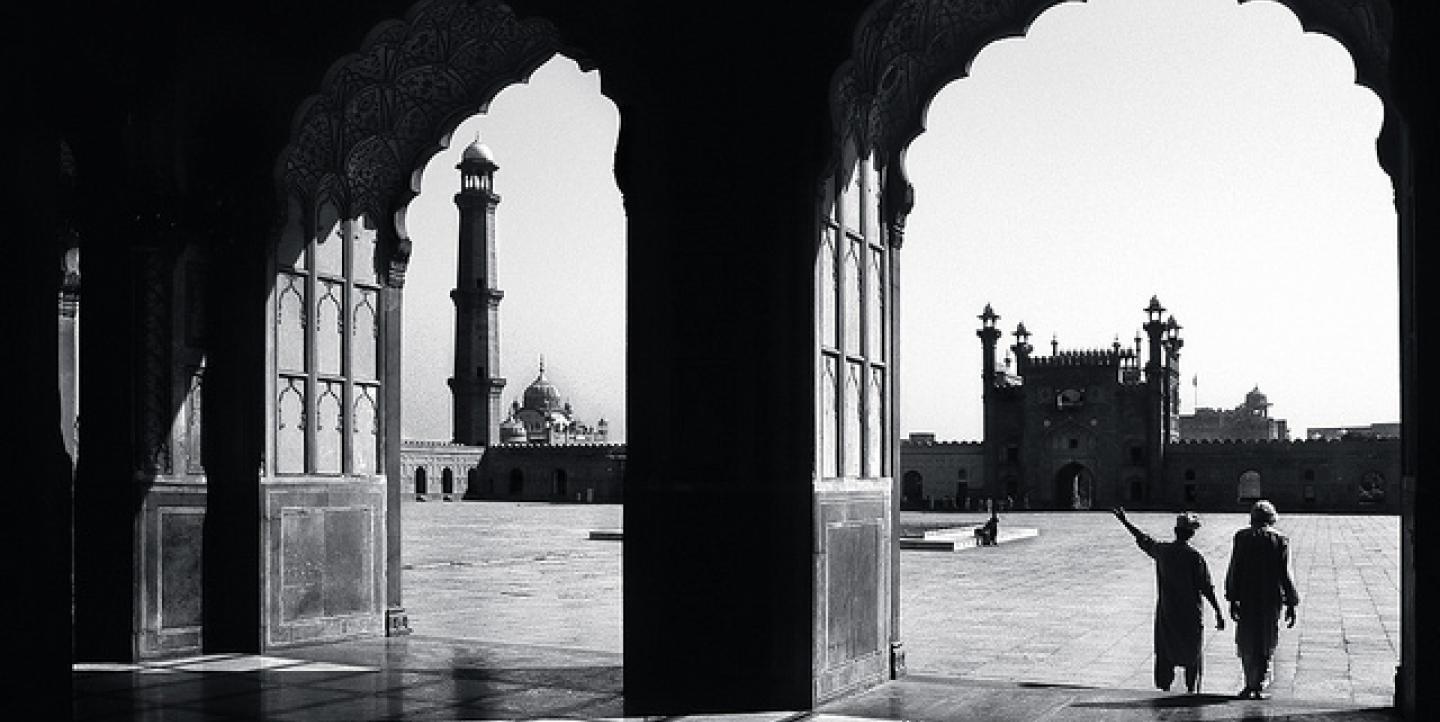In Pakistan, reporting on religious issues is risky business. Many journalists have gone into hiding or self-imposed exile due to threats they received for articles they’d written or comments made on air.
Prominent TV anchor and newspaper columnist Raza Rumi fled to the United States after he survived a hail of bullets that left his driver dead and bodyguard wounded in March 2014 in Lahore.
“Questioning the treatment of marginalized groups is enough for extremists to label you an apostate in the Islamic Republic,” says Rumi, a fellow at the National Endowment for Democracy. He still writes about religious issues for media back home and continues to receive threats while in exile.
Violent attacks on religious minorities rose significantly in Pakistan last year, according to a Human Rights Watch report issued in January. The “government did little in 2014 to stop the rising toll of killings and repression by extremists groups that target religious minorities,” wrote Phelim Kine, HRW deputy Asia director.
Pakistani journalists are vulnerable on two fronts. Fanatics threaten to kill them for coverage deemed heretical or disrespectful to Islam. Courts charge them with blasphemy and threaten prison terms.
Last year, Shoaib Adil, a magazine editor and publisher in Lahore, disappeared from public life after blasphemy charges were filed against him. According to a BBC article, Adil had been a vocal critic of religious militarism.
In mid-May, I exchanged emails with Waqas A. Khan, a Pakistani reporter I met last summer when he was part of an exchange program sponsored by the International Center for Journalists. His stories about violence against Christians and Muslim minorities have sparked “uncountable” threats, some more serious than others, he says.
Having an “impartial eye on religion” is taboo in Pakistan and can “cost you your life,” wrote Khan, bureau chief in Kasur, a district 42 miles from Lahore, for two newspapers, The Nation and Daily Pakistan Observer.
Pakistani journalists are not alone. Brian Pellot, director of global strategy for Religion News Service, noted that, “47 percent of countries have laws that penalize blasphemy, apostasy and/or defamation of religion. In many of these countries, bloggers and journalists are censored, arrested or murdered for merely reporting the facts of a developing story.”
Journalists need to cover religion, even when it’s risky, to hold authorities accountable and distinguish dangerous rumors from reality, says Pellot. “Without professional journalists sifting fact from fiction, social media users and irresponsible bloggers often fan the flames of conflict,” he wrote in an email.
He offers the following five survival tips for reporting about religion in dangerous environments:
Know the red lines
In order to push the limits, you first need to understand them. Freedom of expression is egregiously undervalued in many countries. Brush up on local laws and cultural sensitivities so you know what is taboo before you get yourself in a bind.
Let sources say what you can’t
Include alternative voices in your reporting—people who can express ideas and opinions you can’t or who represent identities that are often absent or distorted in the press. This might sound like a basic principle of good reporting—it is—but it’s also a powerful way to air dissent and to highlight local controversies and debates. Just be sure that including such quotes isn’t likely to endanger you or your sources.
Write anonymously
If you care more about reporting the facts or stating your opinions than you do about seeing your byline, consider writing anonymously or pseudonymously. Don’t think for a second that doing so will make you totally untouchable.
If you’re reporting on sensitive issues you should take every precaution to avoid being traced, tracked or identified. If you fail to do so, you’re not only compromising your own safety but also that of your sources. Start with some basic online privacy tips from the Electronic Frontier Foundation, Tor, Privacy International and Access Now.
Report from exile
Hardly ideal, but reporting from exile is often a necessary option. If journalists and citizens are unable to cover sensitive religious topics from within their countries, they might choose to safely, securely and anonymously feed information to outsiders who have large international followings. Diaspora journalists living and working abroad still need to consider the safety of family, friends, colleagues and sources back home. IranWire is a great example of this kind of reporting.
Write between the lines
If you’re mainly worried about automatic keyword censorship online, get creative. Netizens in China have long referred to the Tiananmen Square incident of June 4, 1989, as “the thirty-fifth of May.” Such obfuscation is usually just a stopgap until the censors catch on, but if your readers know what you mean, go ahead and give it a shot.
Image of Badshahi Mosque in Pakistan CC-licensed on Flickr via zerega


